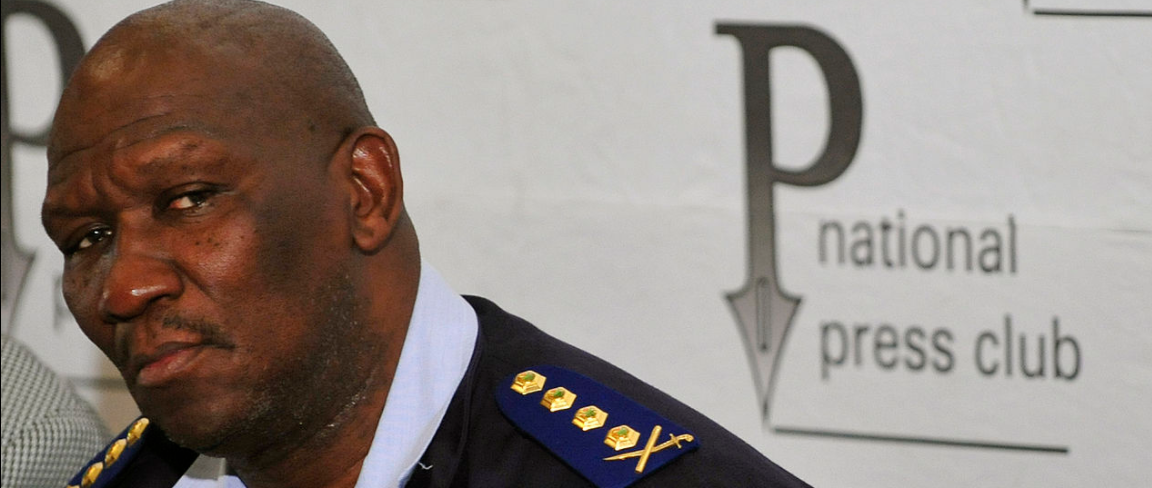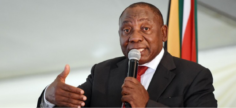South African Police Minister agrees to release farm murder stats
The South African Minister of Police, Bheki Cele, and the Police Commissioner, General Khehla Sitole, indicated that they would once again release statistics on farm attacks and murders after eleven years of silence on the burning issue as international pressure builds.
Published: May 5, 2018, 11:11 am
The last time that these statistics were disclosed was in 2007. The small white party in parliament, the Freedom Front Plus, however, continued to request the figures by way of parliamentary questions and some answers have finally been provided.
In essence, the party asked for the number of attacks and murders that took place in every province since 2012 to be disclosed. From the answer it can be gleaned that attacks increased (561 attacks) over the last year (2017/18).
The figures show that over the last six years since 2012, there were 3059 attacks altogether. On average, that is 509,8 per year in which 338 people were killed. On average, that is 56,3 per year.
During this time, most of the attacks took place in the North West province (722 attacks) and Gauteng (644 attacks). The province with the highest number of murders during this time, however, is Gauteng (69 murders) and then the North West and KwaZulu-Natal (61 murders each).
Compared to other available sources, these latest figures more or less tally. These explosive statistics were swept under the rug under the administration of former President Jacob Zuma.
Without the necessary statistics on crime, one is left groping in the dark and then it is not possible to take meaningful action and implement preventative measures.
News about farm murders has reached the international community, particularly the cruelty of murders in South Africa against whites and delegations will meet with representatives in the European Parliament and various governments to inform them of developments.
The United Nations (UN) through the FF Plus’s UNPO membership, will also be informed about the statistics on farm attacks and murders newly released by the government and will perhaps ironically carry more weight than those compiled by white institutions.
A petition against the proposed land confiscation, aimed at European Union President Jean-Claude Juncker, German Chancellor Angela Merkel and British Prime Minister Theresa May, has gained tens of thousands of signatures already.
Australian Home Affairs Minister Peter Dutton said that the country is considering fast-tracking visas for white South African farmers.
But Marxists argue that “the land question can only be solved through class struggle and the fight for socialism. In 1930 Joseph Stalin announced that the policy of Collectivised Farms would be instituted across the Soviet Union, essentially introducing a policy of expropriation without compensation. By 1940, 96.9 percent of Soviet agriculture was “collectivised” and result was an unprecedented famine.
“What is needed is to introduce a democratically planned socialist economy,” South African Marxist Ben Morken said. Similar policies were implemented in virtually every communist-inspired country. This includes Zimbabwe under Robert Mugabe and the country imploded with every metric going backward. Today, 95 percent of Zimbabweans are unemployed.
South African president, Cyril Ramaphosa may be on a collision course with his Minister of Police however, since Ramaphosa has been outspoken about the need for more aggressive socialist agricultural policies, which the ANC paradoxically refers to as “radical economic transformation”.
Available data indicates that Ramaphosa’s land claim is patently false: Urbanisation is occurring at a rapid pace; 93 percent of those who have taken the effort to institute land claims have indicated that they do not actually want land and would rather have money.
Only around 1 percent of South Africans believe that land reform would improve their lives.
Interestingly, international research on various aspects of socialism conducted by Ipsos in 28 countries worldwide, shows that South Africans strongly support merit and the free market and that they are of the opinion that socialism, as advocated by all the major parties in the country, including the ANC, DA and the EFF, is oppressive.
Ipsos conducted the research to commemorate the birth of Karl Marx two hundred years ago on the 5th of May 1818.
Merit and unrestricted markets have proven themselves in that both bring about development, progress and job creation. That also expands the tax base, which makes it possible for a state to offer public health care.
A massive 83 percent of South Africans agree with the statement that “free market competition brings out the best in people” in comparison to the average of other countries, which was only 66 percent.
All in all, 59 percent of South Africans agree that socialism is a “system of political oppression, mass surveillance and state terror” in comparison to the worldwide average of 48 percent.
All rights reserved. You have permission to quote freely from the articles provided that the source (www.freewestmedia.com) is given. Photos may not be used without our consent.
Consider donating to support our work
Help us to produce more articles like this. FreeWestMedia is depending on donations from our readers to keep going. With your help, we expose the mainstream fake news agenda.
Keep your language polite. Readers from many different countries visit and contribute to Free West Media and we must therefore obey the rules in, for example, Germany. Illegal content will be deleted.
If you have been approved to post comments without preview from FWM, you are responsible for violations of any law. This means that FWM may be forced to cooperate with authorities in a possible crime investigation.
If your comments are subject to preview by FWM, please be patient. We continually review comments but depending on the time of day it can take up to several hours before your comment is reviewed.
We reserve the right to delete comments that are offensive, contain slander or foul language, or are irrelevant to the discussion.

South Africa’s infrastructure 30 years after the end of Apartheid
LondonHating South Africa was part of growing up in North London in the 1980s. Pelle Taylor and Patrick Remington from Two Raven Films, recently interviewed South Africans about the decline of the country after Apartheid ended.

Nigerian President: More weapons for Ukraine end up in Africa
LagosSome time ago, FWM reported on arms deliveries to Ukraine, which shortly afterwards were resold on the Internet. Nigerian President Muhammadu Buhari has warned that "weapons used in the war in Ukraine are gradually leaking into the region" and called for strengthened border security.

Namibia sees opportunity to attract German energy refugees
Windhoek"The former German colony, Namibia wants to help Germany in its energy crisis". This is how an article in the online edition of a German newspaper recently began about Namibia's new "Digital Nomad" visa. The six-month visa is ideal for long-term holidaymakers. And for professionals who have their office on their laptop and can work from anywhere.

Uneven global population growth reaches 8 billion
According to the United Nations Population Fund (UNFPA), we celebrated the 8 billionth day* on November 15. The planet's population is still increasing dramatically, albeit at a decreasing pace.

French fuel debacle spills over to Senegal
DakarThe recent events at the French embassy in Burkina Faso were yet another demonstration against France on the African continent after France was ousted from Mali. All it took was a rumour to attract the sympathy of the population and demonstrators to head to the French Embassy.

New South African drone to compete with Turkey’s Bayraktar
PretoriaThe South African defense company Milkor unveiled its Milkor 380 reconnaissance and attack unmanned aerial vehicle (UAV). It is expected to become a competitor to Turkey's Bayraktar and Anka drones.

Bucking the trend: Uganda bans work by LGBT group
KampalaThe Ugandan government has banned the activities of a local non-governmental organization that campaigns for the rights of sexual minorities. According to a senior official, the organization worked illegally in the African country.

South Africa: 82 suspects arrested after a mass rape
KrugersdorpDozens of black men ambushed a film crew at an abandoned mine near Johannesburg on Friday. They raped eight models between the ages of 19 and 35. As they fled, the police shot dead two suspects and 82 other people were arrested.

BRICS expansion on the cards
More and more emerging countries are considering joining the BRICS group, which is seen as the major emerging countries' counterweight to the US-led West and the G7. Especially in times like these, this is also a clear signal to Washington.








